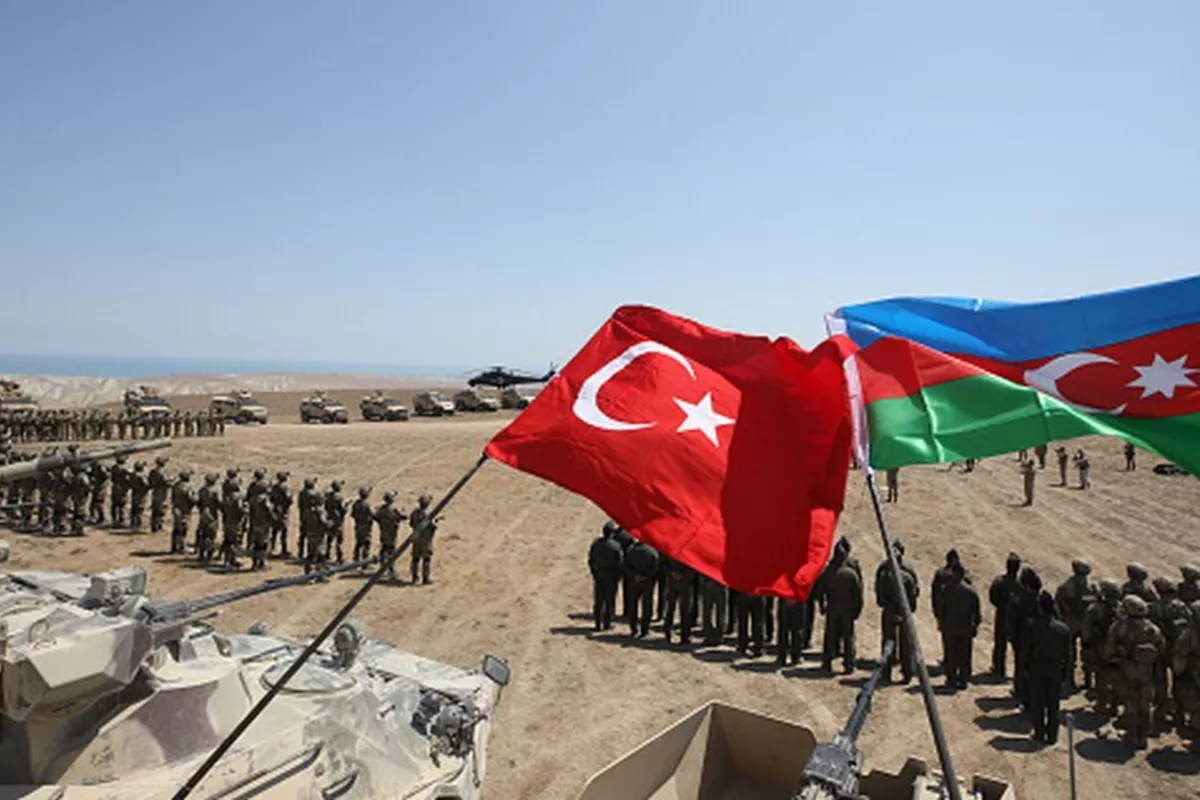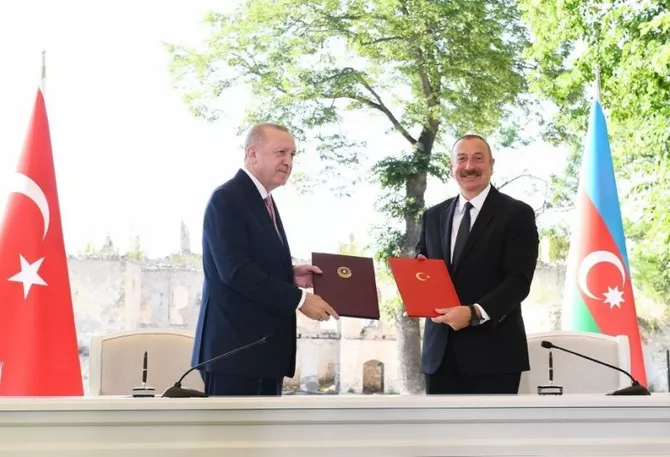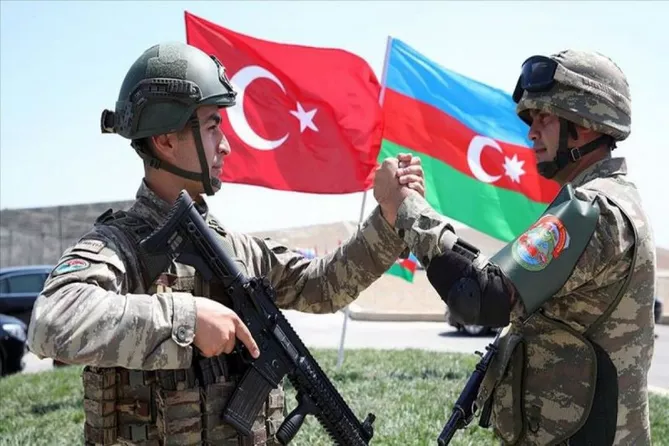
photo: BBC
By carefully navigating between major regional powers, Azerbaijan has managed to carve out a rare and delicate equilibrium in the South Caucasus. As a member of the Non-Aligned Movement, Baku remains committed to the principles of neutrality, and in doing so, has become a unique case in a region often defined by rigid alliances and geopolitical fault lines.
What makes Azerbaijan’s position particularly intriguing is that it maintains two key strategic partnerships-one with Türkiye and one with Russia. On the one hand, the Shusha Declaration with Türkiye formalizes their relationship as strategic military allies, leaving little doubt about their deepening defense cooperation. On the other, Azerbaijan remains bound to Russia through the Moscow Declaration on Allied Interaction, signed in February 2022, which outlines a framework for bilateral cooperation and allied engagement.

Photo: AZERTAC
This dual-track diplomacy is not accidental. It is a product of Baku’s strategic calculus: to maintain its sovereignty, maximize its regional leverage, and avoid being pulled too far into the orbit of any one power. In doing so, Azerbaijan walks a tightrope-benefiting from strong relations with both Ankara and Moscow without compromising its core interests.
From time to time, public debate surfaces around the idea of establishing a Turkish military base on Azerbaijani soil. Yet, such a move remains highly improbable in the current context. Not because Türkiye fears Russia-far from it-but because there is no strategic urgency for such a deployment. Azerbaijan doesn’t need Turkish troops stationed on its territory. The Shusha Declaration already contains a NATO-style provision, ensuring that Türkiye would automatically support Azerbaijan in the event of a military threat. In short, mutual defense is guaranteed-no base required.
Would such a base help deter potential Russian aggression? That question presumes an imminent threat that simply doesn’t exist. There is no credible indication that Russia is contemplating military action against Azerbaijan. Were such a scenario even to arise, the presence of a Turkish base would risk igniting a broader regional war rather than preventing it. Moreover, the geopolitical shockwaves of a Turkish base in the South Caucasus would be profound, likely triggering a sharp Russian response and unsettling the region’s already fragile balance.

photo: Azerbaijani defense ministry
In this light, current talk of a base seems out of step with the realpolitik of the moment. Russia and Azerbaijan still maintain an active partnership, and Türkiye-despite its close alliance with Baku-has no interest in provoking Moscow unnecessarily. Ankara’s position is clear: it supports Azerbaijan fully, but it will not escalate tensions at a time when Baku is already managing a sensitive diplomatic standoff with the Kremlin.
That does not mean Türkiye has lost interest in deeper military cooperation. Quite the contrary. The idea of a base may re-emerge in the future, should the regional security environment shift or new threats arise. But for now, both Ankara and Baku appear content with the current status quo: strong defense ties, strategic alignment, and no need for provocative gestures.
In many ways, Azerbaijan’s ability to keep one foot in both camps-without tipping the balance-is a testament to its maturing foreign policy. It is not about hedging or opportunism; it’s about mastering the art of sovereignty in a region where few have managed to do so successfully.
Share on social media